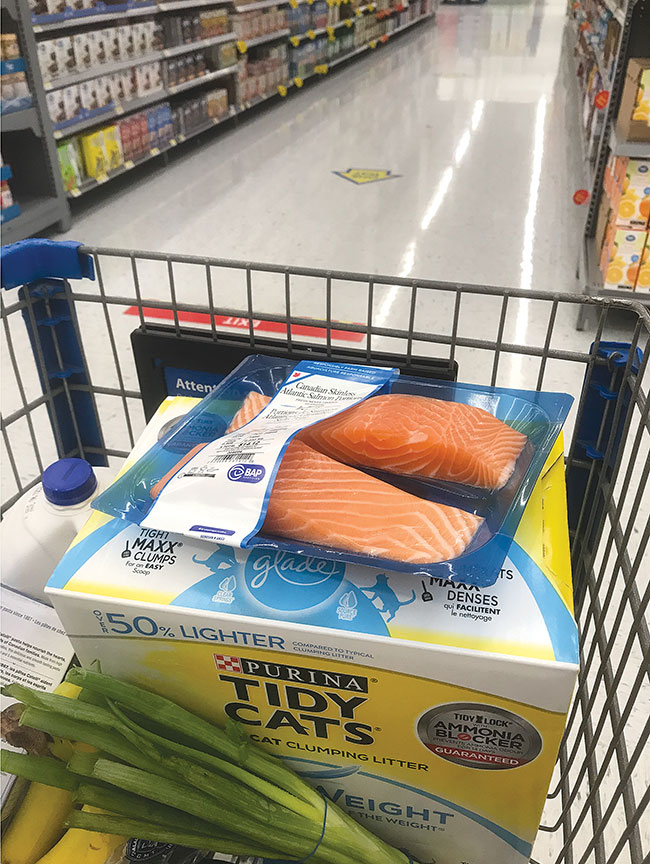
Watchdog wants civil society to have a say in certification process
June 17, 2021
By
Liza Mayer
 BAP-certified salmon. Excluding civil society input from the certification process threatens the legitimacy of eco-labels, says SeaChoice
Photo: Liza Mayer
BAP-certified salmon. Excluding civil society input from the certification process threatens the legitimacy of eco-labels, says SeaChoice
Photo: Liza Mayer Excluding them is a threat to the legitimacy of eco-labels, it says
Aquaculture certifications should include input from civil society or risk the credibility of the eco-labels, says an environment watchdog.
While applauding the Aquaculture Stewardship Council (ASC) for being “the most inclusive and transparent eco-certification,” SeaChoice said ASC and fellow farm assurance programs – Best Aquaculture Practices (BAP) and GLOBALG.A.P – could still improve in how and when they engage with civil society stakeholders.
Not letting civil society stakeholders have their say is a threat to the legitimacy of their eco-labels, it said.
“Consumers will find these certifications’ eco-labels at their local grocery store on seafood such as farmed salmon, shrimp, basa and tilapia. Retailers often refer to these certifications as part of their sustainable seafood procurement policies.
“As a form of market-based governance, voluntary sustainability certifications rely on external parties, including civil society stakeholders, to buy into them or risk losing market support,” said the Vancouver-based group.
Kelly Roebuck, SeaChoice representative from Living Oceans, said stakeholder inclusion “also helps combat any perceptions that industry is playing the role of ‘the fox guarding the henhouse.’”
In December, ASC announced it will begin seeking input from NGOs and the community when reviewing farmers’ requests for leeway (called “variances”) on certain ASC standards, for instance on the number of sea lice acceptable per salmon.
Advertisement
- Shellfish grower signs environmental stewardship deal
- Americans eating more seafood, trying wider range





